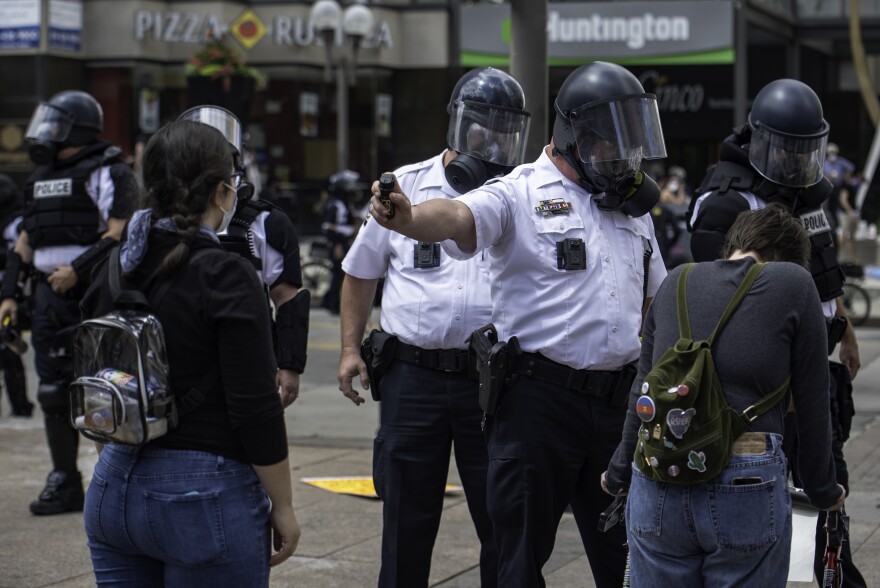Faced with a lack of cooperation, an independent investigator has issued orders for six Columbus Police officers to participate in a probe into excessive force during last summer’s protests.
Richard Wozniak, the retired FBI agent leading the probe, issued Garrity notifications to six Columbus Police officers on Thursday. This means those individuals must answer questions necessary for completing investigations into potential criminal wrongdoing by officers.
If they don’t answer the investigator’s questions, they could be penalized for insubordination, according to the Columbus Department of Public Safety. Those who received orders are strictly witnesses and are not themselves under investigation.
The investigator is taking this route because he has contacted 60 officers in pursuit of information, but to date, 55 have declined to participate in the investigation.
Through this probe, special prosecutor Kathleen Garber has determined there is probable cause to believe some officers committed misdemeanor crimes that other officers witnessed.
“As the independent prosecutor, I have a duty to exhaust all potential avenues to conclude our investigation," Garber said in an emailed statement through the Columbus City Attorney’s office. "We’re in the final stages of this effort, and the independent investigator and I believe that criminal conduct occurred, but in some situations we cannot identify the officers engaging in that conduct due to the gear they were wearing at the time."
Officers have challenged the investigative tactics used by the city, filing a complaint in Franklin County Court earlier this month arguing that they are unconstitutional.
The Department of Public Safety said Wozniak exhausted his other options for gathering witness interviews, and is using Garrity notifications as a last resort.
“The officers who are being ordered to cooperate with the investigations by answering questions are not subject/focus officers. In other words, these witness officers are not suspects,” the department said. “Additionally, during questioning, if it appears that the officer becomes the focus of an investigation, they may end the interview by invoking their 5th amendment rights and no statements they have made can be used against them in a criminal proceeding.”
The email says Wozniak’s investigations have exonerated some police officers who initially appeared to have committed illegal acts, based on videos submitted to the city.
A federal lawsuit filed in July on behalf of more than two dozen protesters seeks monetary damages for injuries sustained in clashes with police after the death of George Floyd. The lawsuit describes peaceful demonstrators and bystanders being beaten, fired on with wooden and rubber bullets, and unlawfully arrested during protests in late May and June.
In September, an independent review of complaints against Columbus Police during the protests found that the vast majority of excessive force allegations couldn't be proved, due to lack of evidence or an inability to identify officers.
The firm BakerHostetler, which was tasked with determining if any officers should be departmentally charged for violating policy, said they encountered challenges with the absence of bodycam footage among SWAT officers, the neglect of many officers to file use-of-force reports, and the refusal of many officers to give full accounts of their experiences.
As of Tuesday, March 23, Garber has been paid $24,938.82 for her duties as special prosecutor.


